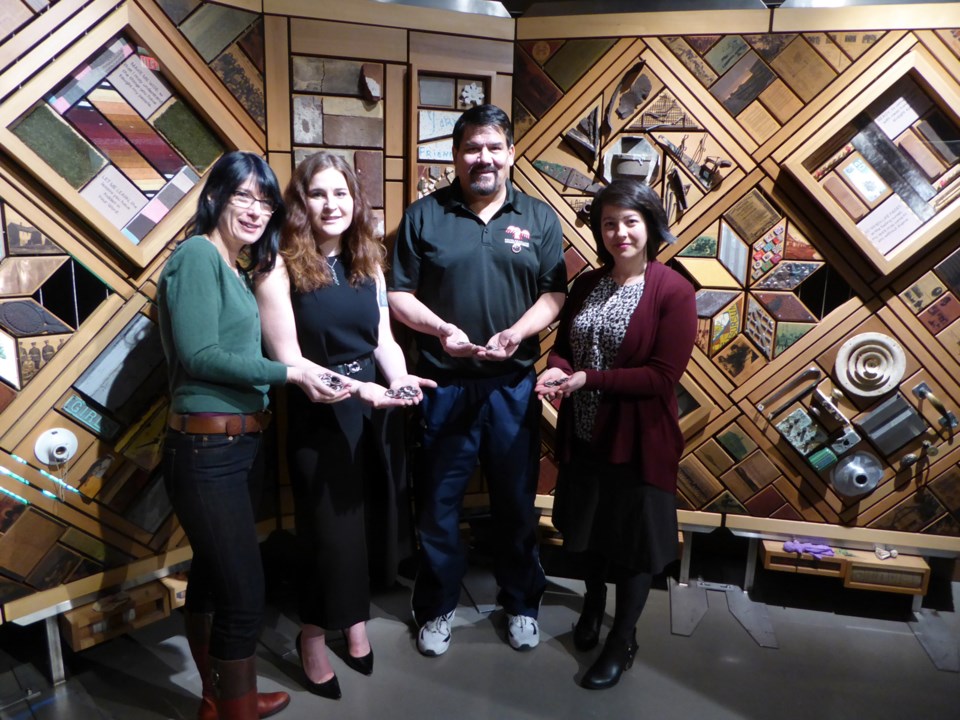Renaming New Westminster or giving it a dual name, providing financial support for the Qayqayt First Nation and changing the Judge Begbie statue – those are just some of the ideas generated during the Truth and Reconciliation New West process.
The Truth and Reconciliation Commission heard from more than 6,000 people about residential schools and their impacts, and made 94 calls to action. Last November, several New Westminster residents launched the Truth and Reconciliation New West process.
“We call on the City of New Westminster to join a nationwide movement of municipal governments standing up to their reconciliation responsibilities,” said Babs Kelly, one of the organizers of Truth and Reconciliation New West.
Nadine Nakagawa said the group came together because it wasn’t hearing anything about truth and reconciliation in New West and believes everyone has a role to play.
The group held a large event at Anvil Centre, Community Stories of Truth and Reconciliation.
“We laughed, we cried, we talked about topics that are often felt to be too taboo to even acknowledge,” Nakagawa said.
Kelly said that without “cultural humility” there is no real change, no sense of self-reflection or ability to question biases and assumptions or understand systemic racism. She said cultural humility encourages reflection and understanding and helps build relationships of trust.
“It is a path to cultural safety, which is what we are asking you to be involved with, to create an environment free of racism and discrimination, where an indigenous person will feel safe,” she recently told city council.
In addition to the Community Stories of Truth and Reconciliation event on Jan. 19, the local group held small group discussions, using a tool kit provided by Truth and Reconciliation Canada, where people discussed how to move forward in New Westminster.
“The community talked about what steps they’d like to see with reconciliation in New Westminster,” Kelly said. “I’m not here to tell you that reconciliation is easy. It isn’t. But it is tremendous, and a commitment to taking a path to reconciliation will bring about possibilities and opportunities that are both imaginable and very doable.”
In general, Kelly said people wanted the City of New Westminster to work with the Qayqayt First Nation to support its community and leadership role and to support purposeful actions and address certain legacies, such as the Judge Begbie statue located in downtown New Westminster (who is seen to be a symbol of the city’s colonial history.)
“Reconciliation is a journey. The temptation to frame it as an act or an end result should be resisted. Nonetheless, as with all journeys, there needs to be a roadmap, resources and support,” she said. “We were quite astounded by the commitment from community members to be part of that roadmap and looking to the City of New Westminster for the resources and support to be able to do that.”
Council referred several recommendations from Truth and Reconciliation New West to staff for a report.
Mayor Jonathan Cote said truth and reconciliation is an important dialogue to have in the community.
“New Westminster, as the oldest city in Western Canada, does need to be part of this discussion and does have a role to play,” he told the group. “Thank you so much for bringing this to us and really helping to shape this discussion.”
Truth and Reconciliation New West is calling on the City of New Westminster to pursue a number of paths toward reconciliation. Council referred the four recommendations to staff for a report.
* That the city make a concrete and actionable commitment to the Truth and Reconciliation Commission’s calls to action, particularly those applying to municipal government responsibilities.
* That the mayor and council request a staff report regarding the calls to action and how New Westminster will operationalize actions that are undertaken.
* That the city agree to find ways to name and rename civic assets that would reflect reconciliation, acknowledge the unceded territory of the Qayqayt First Nations and Coast Salish people and demonstrate diversity and inclusivity.
* That the City of New Westminster support, through funding and other tangible resources, a community-led process of reconciliation that would include forums and dialogue, indigenous-led events and actions and together creative and civicminded actions that demonstrate the spirit and principle of reconciliation.
For more information on the local group and its efforts, visit www.trnewwest.com.



